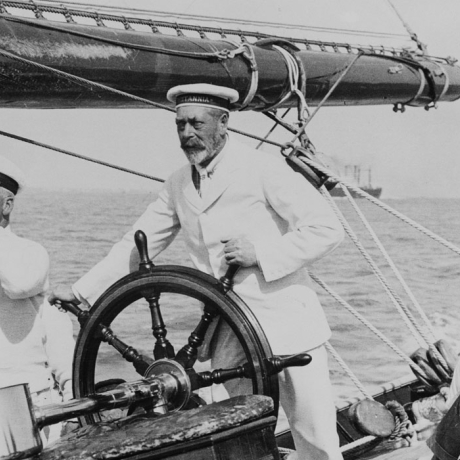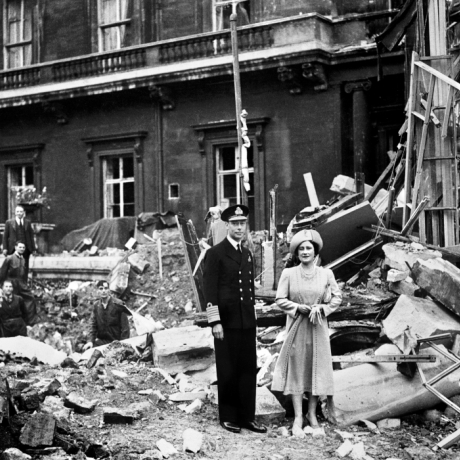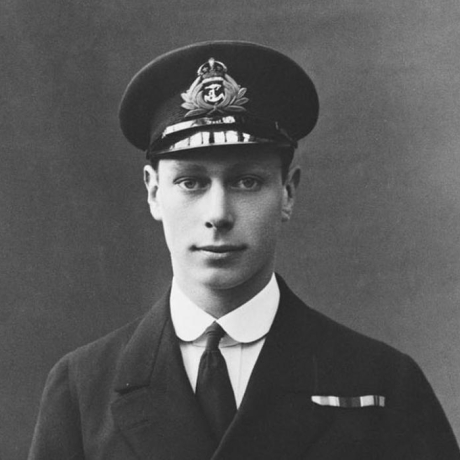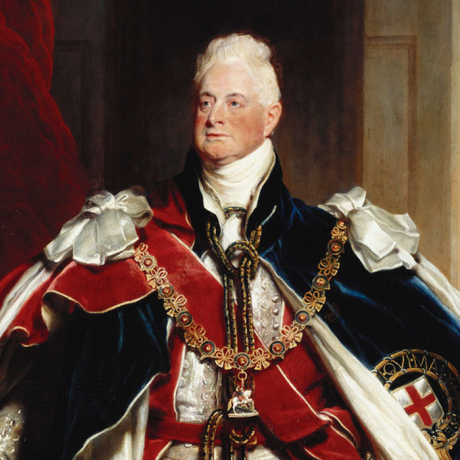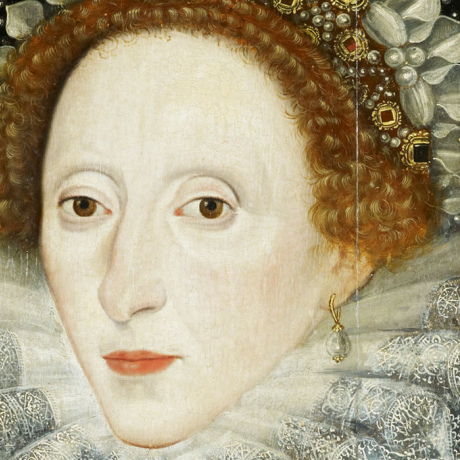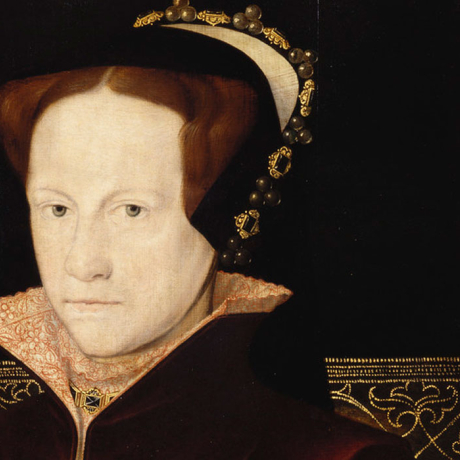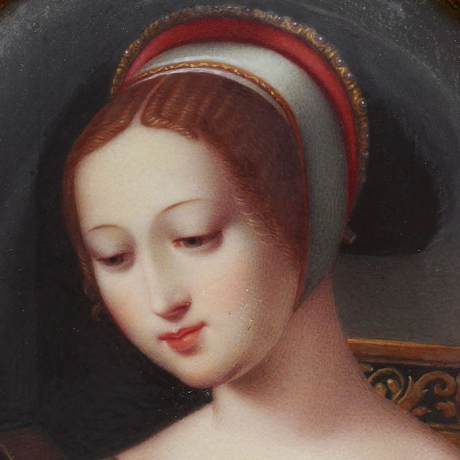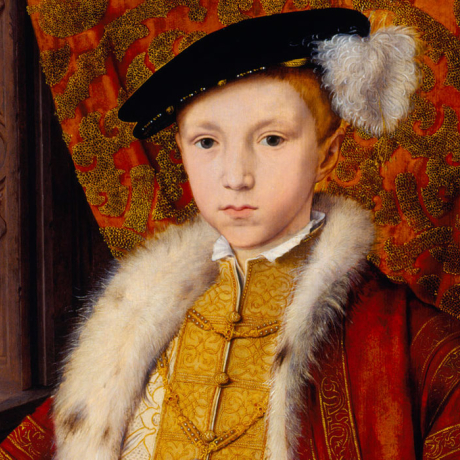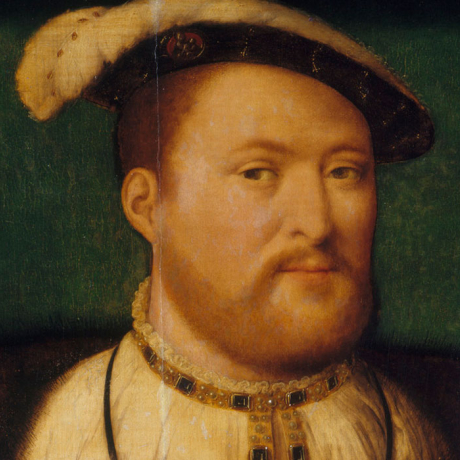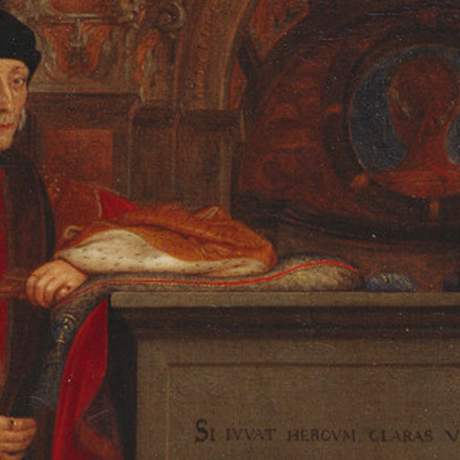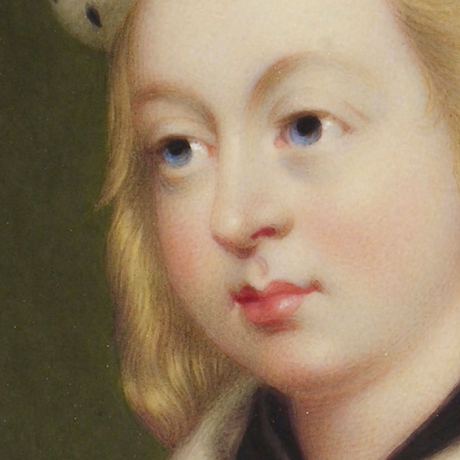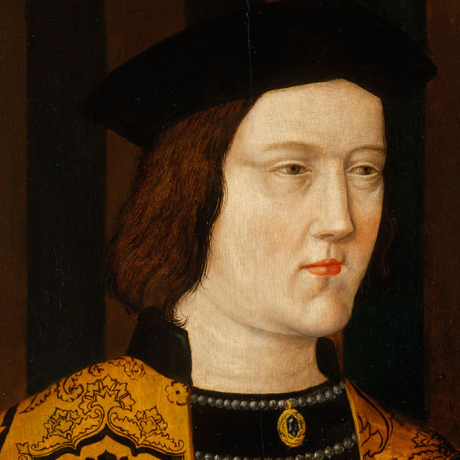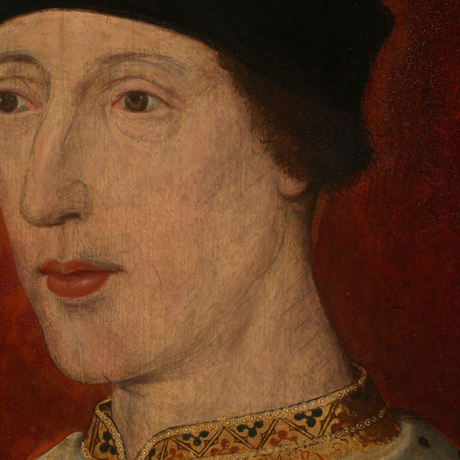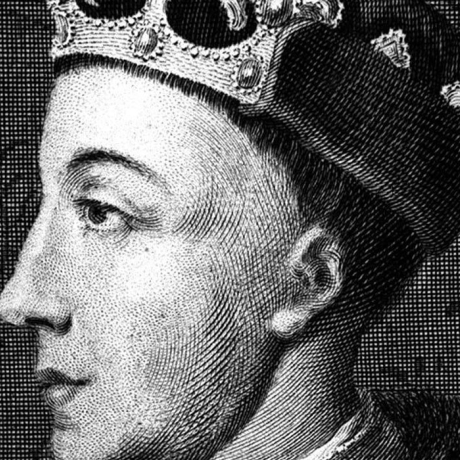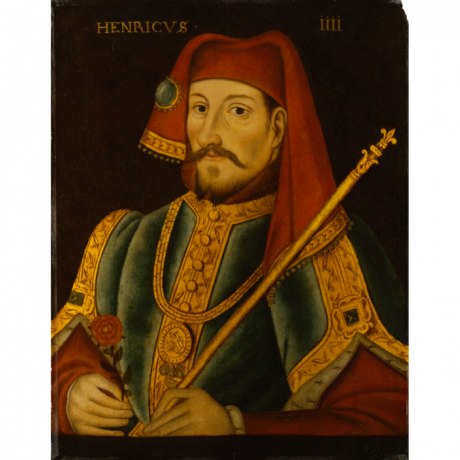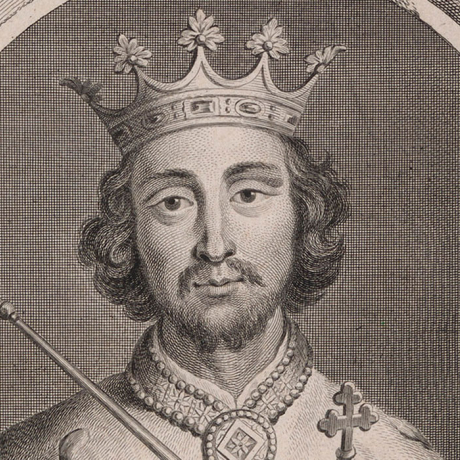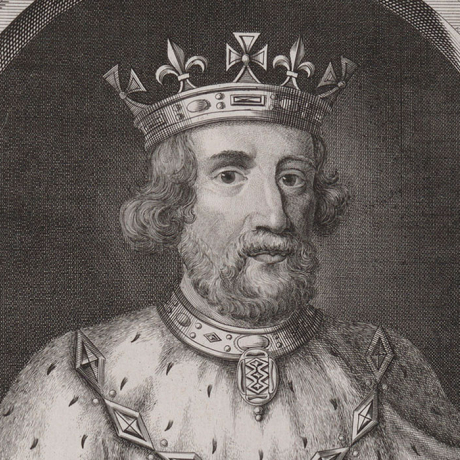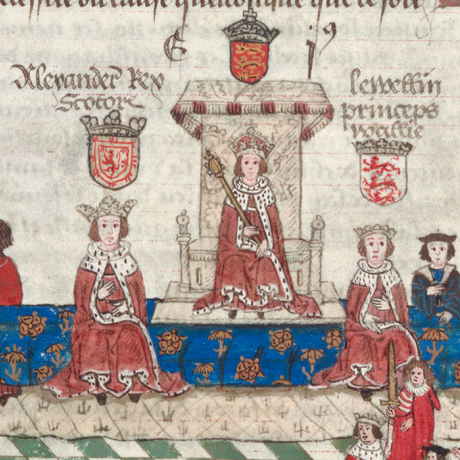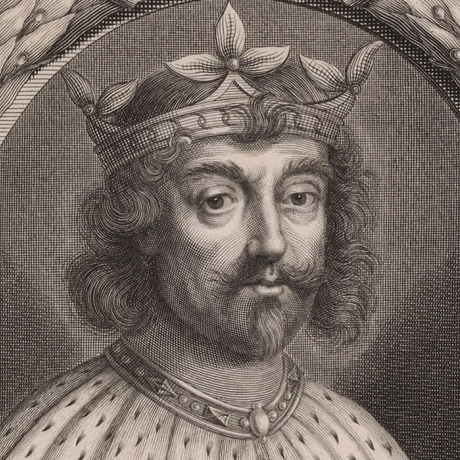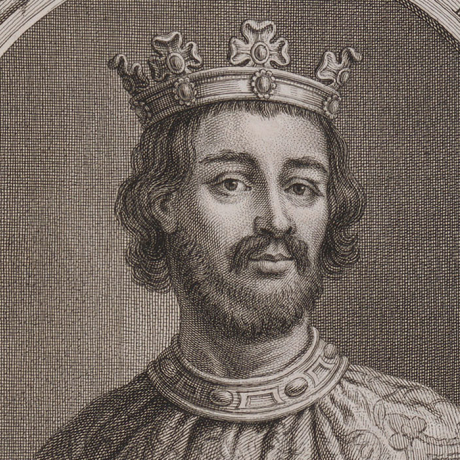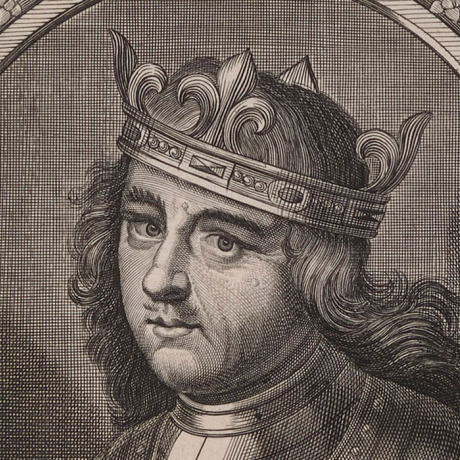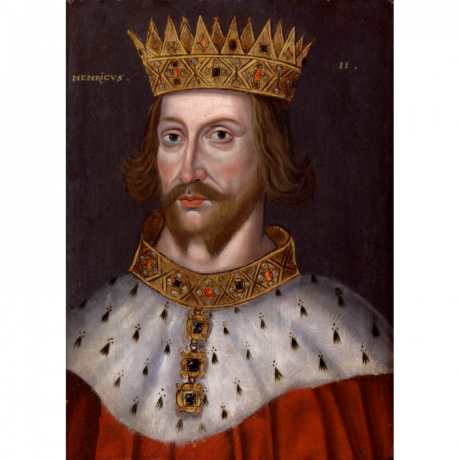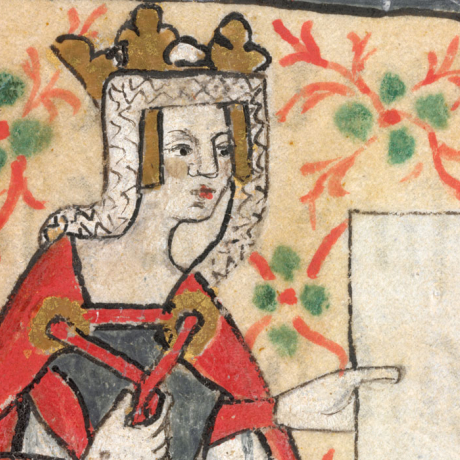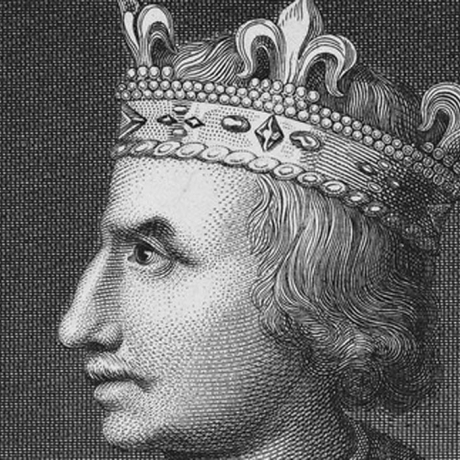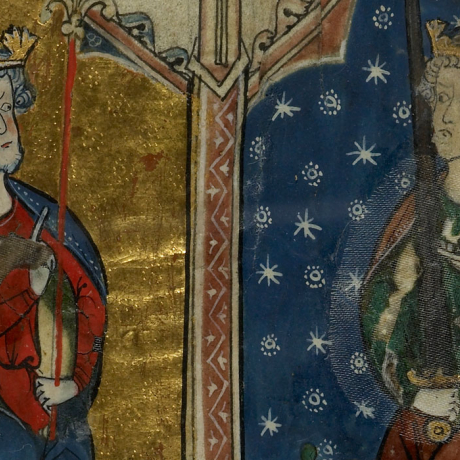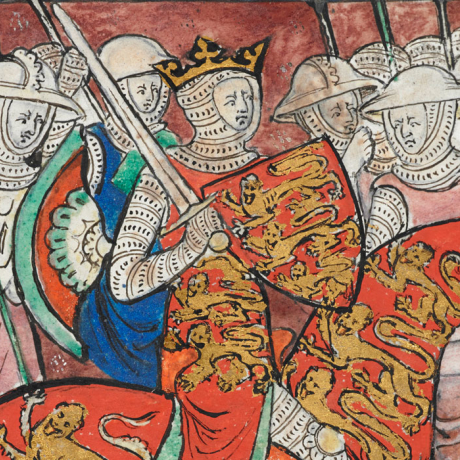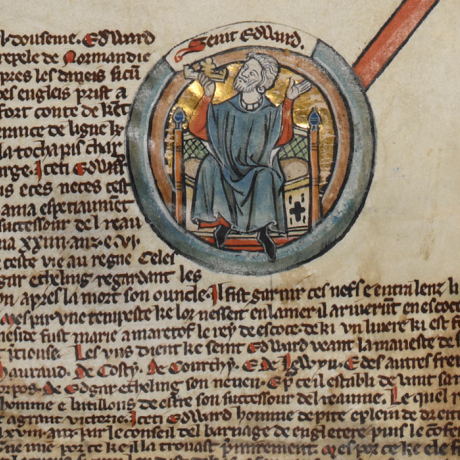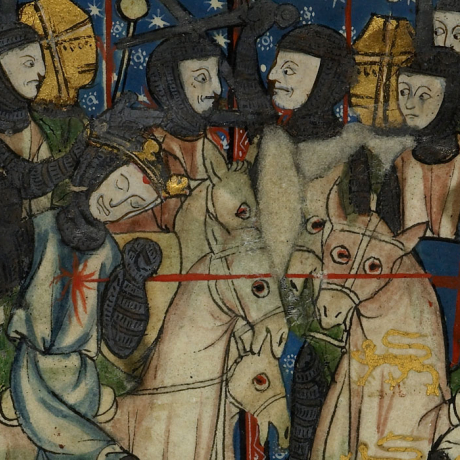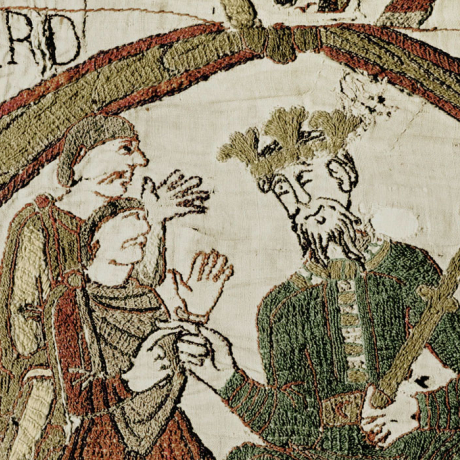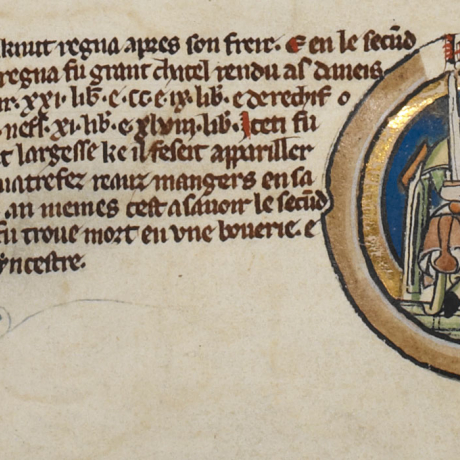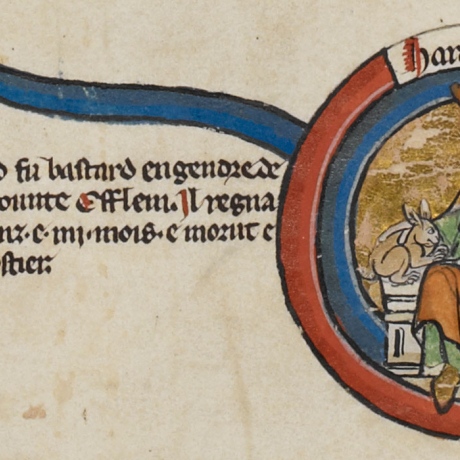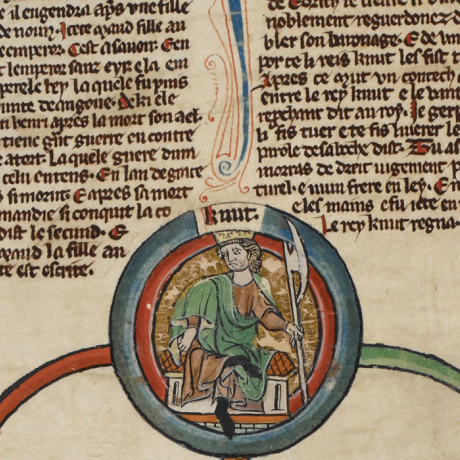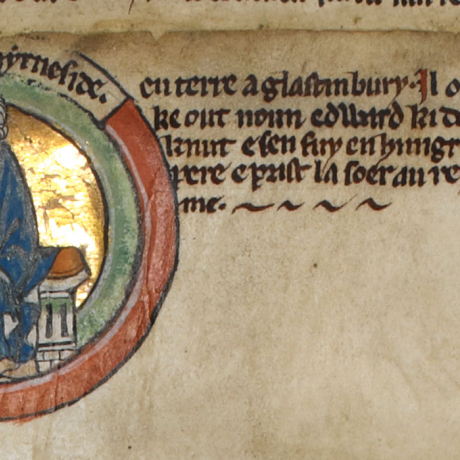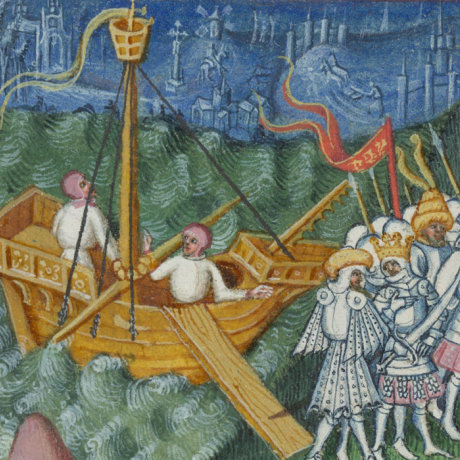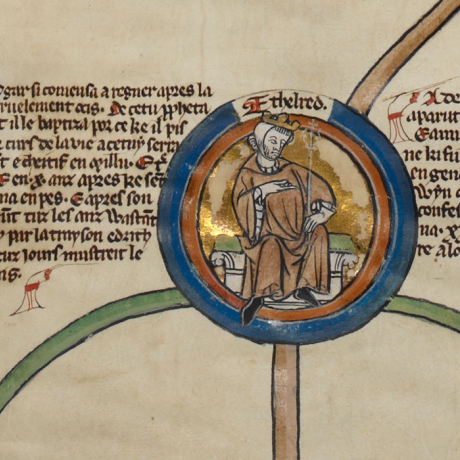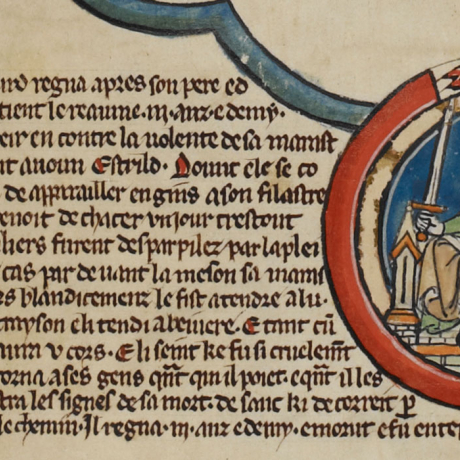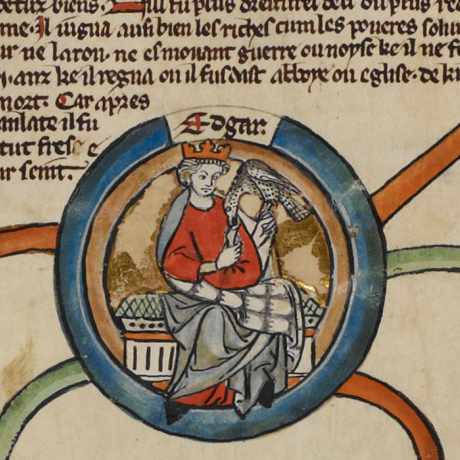Prince George Frederick Ernest Albert, second son of the Prince and Princess of Wales (later King Edward VII and Queen Alexandra) was born on 3 June 1865 at Malborough House and baptised on 7 July at Windsor Castle.
As a second son of the heir apparent Prince George has destined for a career in the Royal Navy and in 1877 he and his elder brother Prince Albert Victor became cadets. In January 1892 the Prince's naval career was brought to an abrupt close by the sudden death of Prince Albert Victor, so putting him in the direct line of succession. He was created Duke of York on 24 May 1892, and one year later, on 3 May 1893, he became engaged to Princess Victoria Mary (May) of Teck, who had been Prince Albert Victor's fiancee. The couple were married on 6 July 1893 at the Chapel Royal, St James's Palace, and spent their honeymoon at York Cottage, Sandringham, which was to be their residence for the next thirty-three years.
In the course of their long and happy marriage, six children were born to them: Prince Edward, Prince Albert, Princess Mary, Prince Henry, Prince George and Prince John.
On 23 January 1901, following the death of Queen Victoria, The Duke accompanied his father to the first Privy Council of the new reign at the Banqueting Hall, St James's Palace, and was the first to swear allegiance to the new King. In May 1901 the Duke opened the first Parliament of the new Commonwealth of Australia, and then visit New Zealand, South Africa and Canada. Upon his return to England, King Edward VII created him on 9 November 1901 Prince of Wales, and in April 1903 the heir apparent moved, with his wife, to Malborough House, his new London home. He continued with his Royal Tours, visiting Berlin in 1902. Austria in 1904, and India and Burma in 1905-6.
The Prince of Wales was proclaimed King George V following his father's death on 6 May 1910, and his Coronation took place at Westminster Abbey on 22 June 1911.
George V's reign began amid the continuing constitutional crisis over the House of Lords, which refused to pass a Parliament Bill limiting its powers (which would remove its power to veto a Bill from the Commons).
After the Liberal government obtained the King's promise to create sufficient peers to overcome Conservative opposition in the Lords (and won a second election in 1910), the Parliament Bill was passed by the Lords in 1911 without a mass creation of peers.
George visited India in 1911, the only monarch to do so as King-Emperor. He was accompanied by his wife, Queen Mary.
In 1914 the First World War broke out. The King made over 450 visits to troops and over 300 visits to hospitals visiting wounded servicemen, he pressed for proper treatment of German prisoners-of-war and he pressed also for more humane treatment of conscientious objectors.
In 1917 anti-German feeling led him to adopt the family name of Windsor (after the Castle of the same name).
Support for home rule for Ireland had grown in the late 19th century. This was resisted by the Unionists in the north and by the Conservative Party. The 1916 Easter Rising in Dublin, and subsequent civil war, resulted in the setting up of the Irish Free State (later to become the Irish Republic) in 1922, while the six northern counties remained part of the United Kingdom. George played a conciliatory role on this, and on other occasions, such as the General Strike of 1926.
George readily accepted the first Labour government in 1924. Following the world slump of 1929, the King persuaded the Labour leader to head a National Government composed of all parties, which won the election of 1931.
The Statute of Westminster of 1931 enacted that Dominion Parliaments could now pass laws without reference to United Kingdom laws, and abolished various reserve powers still possessed by the Crown and Parliament. This paradoxically increased the monarchy's importance, since the Dominions (no longer subordinated to one supreme Parliament at Westminster) were now linked through common allegiance to the Crown.
George started the annual Christmas Broadcast by the sovereign to the Empire (more recently to the Commonwealth), the first being transmitted in 1932.
In 1935, the King celebrated his Silver Jubilee, an occasion of great public rejoicing.
He died on 20 January 1936 and his eldest son Edward succeeded to the throne as Edward VIII.

